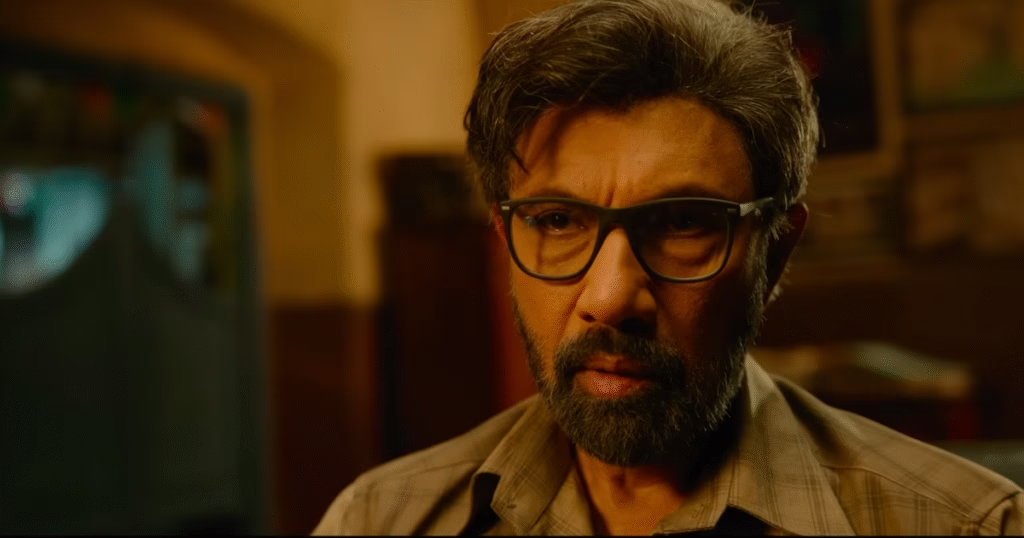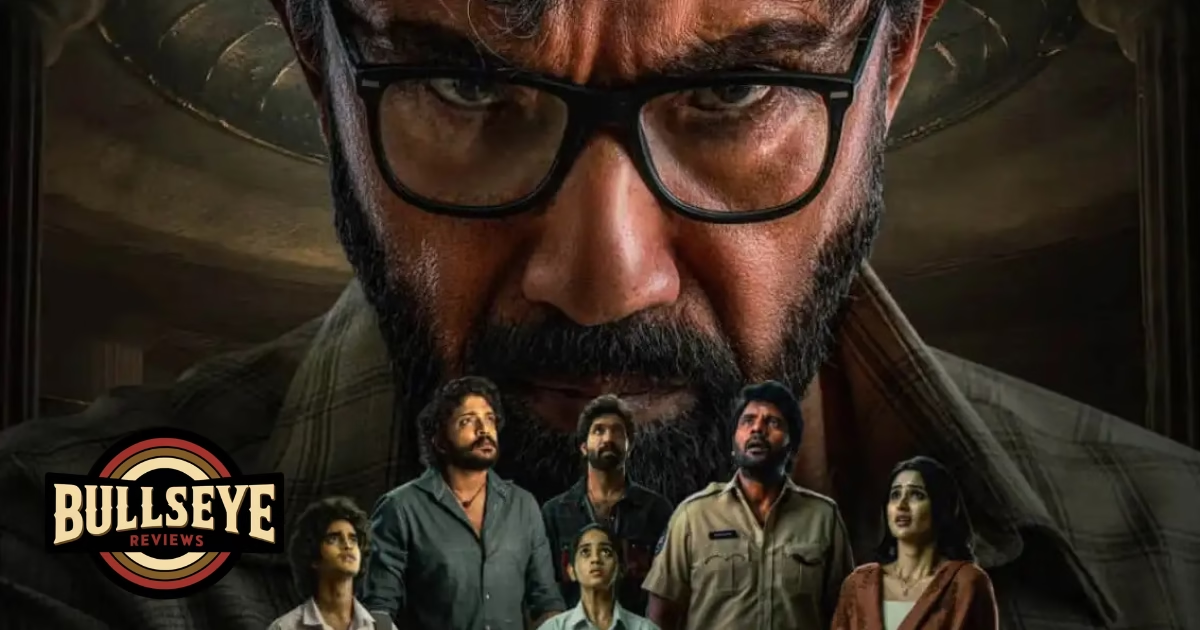Tribanadhari Barbarik blends a mythological touch with a tense crime drama, where Sathyaraj’s grounded performance keeps the film engaging despite its uneven execution. With its mix of vigilante drama, emotional undertones, and layered character arcs, the movie tries to rise above familiar storytelling patterns, succeeding in parts and faltering in others.
Story and Premise
Director Mohan Srivatsa draws inspiration from Barbarik, the legendary warrior from the Mahabharata who vowed to fight for the losing side. In this modern reimagining, psychiatrist Dr. Shyam Kathu (Sathyaraj) embodies that warrior spirit when his beloved granddaughter Nidhi suddenly goes missing.
As the desperate grandfather begins his search, he is joined by a timid constable Chandra (Satyam Rajesh), leading to an investigation that uncovers Hyderabad’s darker underbelly—ranging from small-time crooks Dev (Kranthi Kiran) and Ram (Vasishta Simha), to a ruthless lady don Vakili Padma (Udaya Bhanu). The story gradually unravels into a web of crime, betrayal, and the thin line between victims and perpetrators.
Performances
Sathyaraj shoulders the film with quiet intensity. His portrayal of a man torn between love and vengeance is subtle, though some emotional depth is missing in key moments. Still, his commanding presence ensures the character remains believable.

Vasishta N. Simha and Kranthi Kiran shine as childhood friends caught in circumstances that push them into crime. Their transformation is convincing, even if the writing sometimes feels rushed. Udaya Bhanu makes a striking comeback as a powerful don but is underutilized, while Meghana Sunil (as the missing granddaughter) leaves a lasting mark in limited screen time. Satyam Rajesh provides light vulnerability as the faint-hearted cop, though his arc feels half-baked.
Writing and Direction
Mohan Srivatsa crafts a redemption thriller with mythological symbolism, weaving themes of justice, morality, and destiny. The screenplay starts strong, especially during the investigation sequences, but the narrative loses momentum in the second half due to dragged subplots and forced commercial elements.
The mythological parallels, while interesting, are delivered too directly, leaving little room for subtlety. What could have been symbolic and layered instead becomes overly explanatory. Despite this, the film avoids unnecessary hero glorification and gives space to secondary characters, which adds texture.
Technical Aspects
The film benefits from strong technical backing. Infusion Band’s background score heightens the tension, even if the songs feel generic. Kushendar Ramesh Reddy’s cinematography captures Hyderabad’s grit with some striking night visuals, while Marthand K Venkatesh’s editing could have been sharper, as the pacing dips in several portions.
Production values are solid, and the runtime—just over two hours—helps keep the narrative largely on track despite its rough patches.
Verdict
Tribanadhari Barbarik is not without flaws—its emotional weight often feels undercooked, and its mythological layer is handled too loudly—but it offers an engaging watch powered by Sathyaraj’s performance and a few gripping twists. For audiences looking for a crime drama with mythological echoes and character-driven moments, it delivers enough to hold attention.
Bullseye Rating:★★★ (3/5 stars)
Tribanadhari Barbarik is a Telugu crime thriller mixing mythological inspiration with a missing-child drama. Sathyaraj anchors the film with a strong performance, backed by gripping twists and solid technical craft. Despite pacing issues and heavy-handed symbolism, it manages to engage.

